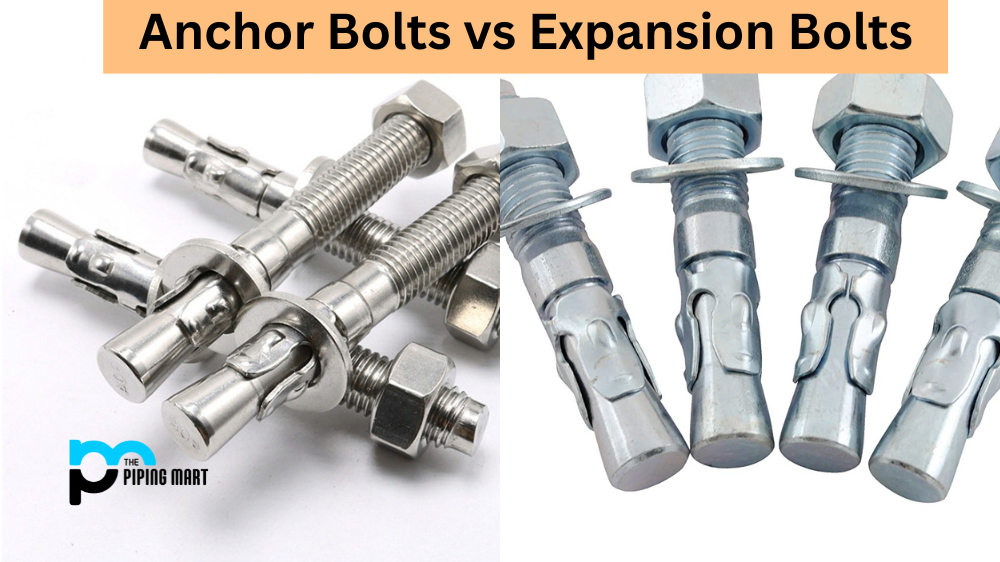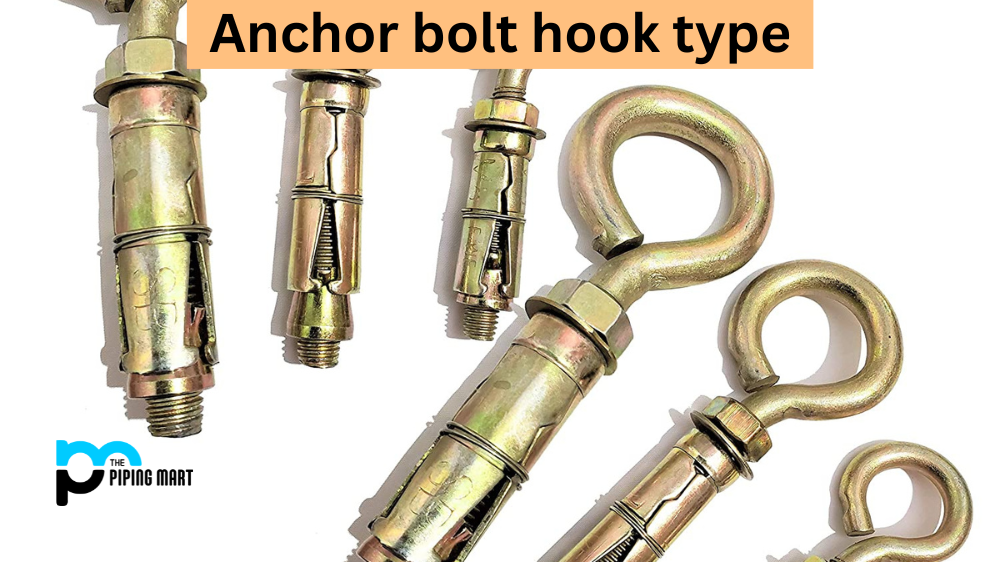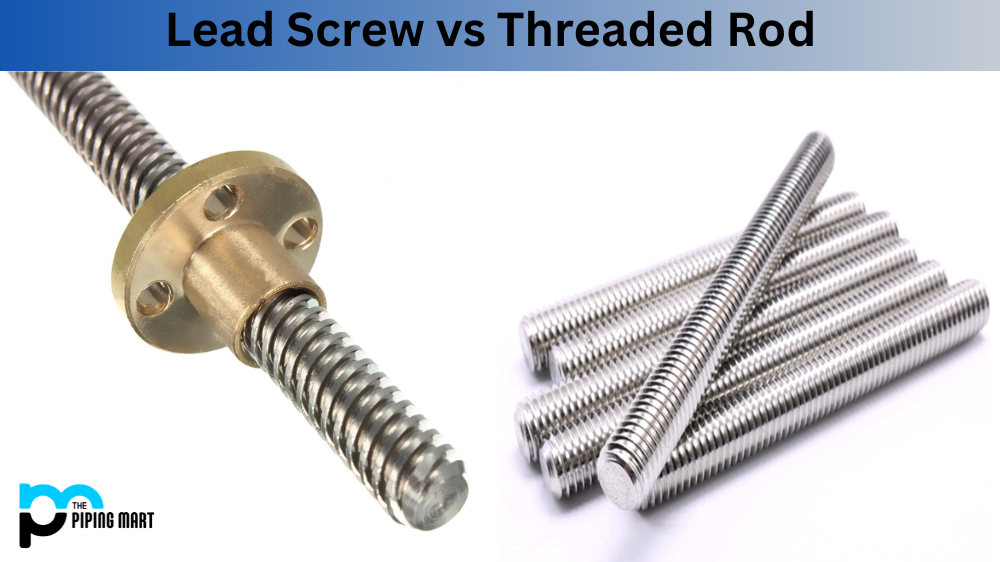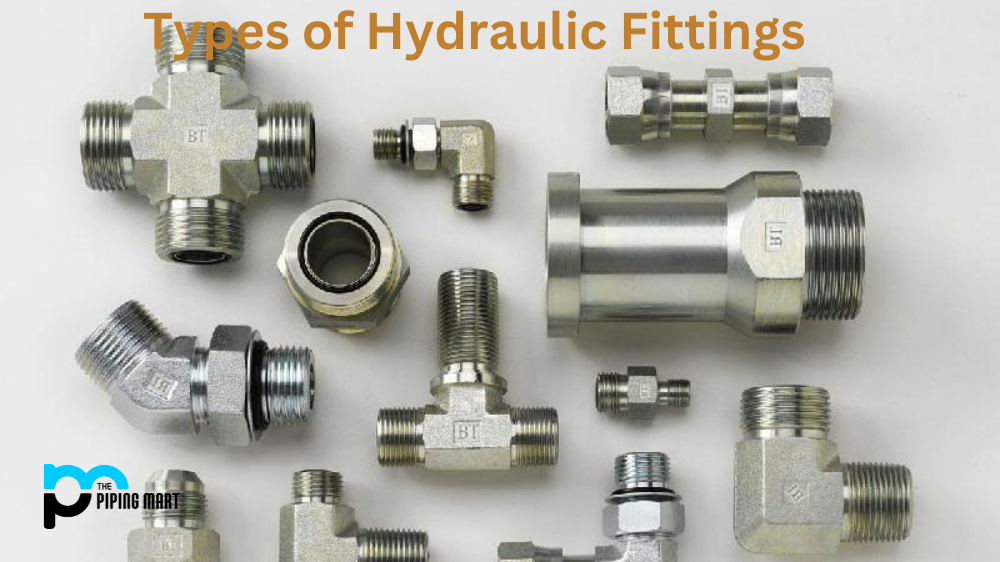If you have ever had to secure something like a heavy piece of furniture or an outdoor play structure, then you have probably heard of anchor bolts and expansion bolts. But what is the difference between these two types of fasteners, and which one should you use for your project? Let’s take a closer look.
What is Anchor Bolts?
Anchor bolts are used to attach objects or structures to concrete, brick, stone, and other masonry material. They are typically made from hardened steel and feature a hook or barbs on the end that helps keep them in place once they are placed in a hole drilled into concrete. Anchor bolts come in many different sizes and designs depending on their application. For instance, some anchor bolts can be used outdoors, while others are designed specifically for indoor use. Anchor bolts are fasteners that are used to connect structural and non-structural elements to concrete. They are typically made from steel or stainless steel and can be either threaded or unthreaded. Anchor bolts are available in a variety of sizes and lengths to accommodate different applications.
What is an Expansion Bolt?
Expansion bolts are used when there is no access to the backside of whatever is being secured, such as when attaching something to a wall or ceiling. Expansion bolts consist of two parts—the bolt itself and an expansion sleeve that fits over the bolt. As the bolt is tightened, it expands the sleeve outward against the material it is being attached to, creating a tight fit that will hold firmly in place even with vibration or shock loads present. Expansion bolts come in many different sizes and designs depending on their application as well. Some expansion bolts can be used outdoors, while others are designed specifically for indoor use. An expansion bolt is a type of fastener that is used to connect two pieces of material together. Unlike an anchor bolt, an expansion bolt expands as it is tightened, which creates a tight, secure connection. Expansion bolts are typically made from steel or stainless steel and are available in a variety of sizes and lengths.
Difference Between Anchor Bolts and Expansion Bolts
How do Anchor Bolts Work?
Anchor bolts work by creating a mechanical connection between the element being attached and the concrete. The head of the anchor bolt sits on top of the element while the shaft extends down into the concrete. As the nut is tightened, the head of the anchor bolt pulls the element down onto the concrete, creating a secure connection.
How does Expansion Bolt work?
Expansion bolts work by expanding as they are tightened, which creates a tight, secure connection between the two pieces of material being connected. The head of the expansion bolt sits on top of one piece of material while the shaft extends through both pieces of material. As the nut is tightened, the head of the expansion bolt pulls the two pieces of material together, and the shaft expands, creating a secure connection.
Advantages of Anchor Bolt
Some advantages of using anchor bolts include their high strength, their ability to resist shear forces, and their ease of installation. Additionally, anchor bolts can be used in a variety of applications, including attaching elements to concrete foundations, walls, columns, and beams.
Advantages of Expansion Bolt
Some advantages of using expansion bolts include their high strength, their resistance to vibration and shock, and their ease of installation. Additionally, expansion bolts can be used in a variety of applications, including attaching elements to concrete foundations, walls, columns, and beams.
Conclusion:
When choosing between anchor bolts and expansion bolts for your project, consider your specific needs first—what type of material you need to secure it to, as well as whether you have access to the backside of what you’re attaching it to. If you need help deciding which type of fastener will work best for your project, don’t hesitate to reach out to an experienced hardware specialist who can help guide you in making an informed decision based on your particular situation. Once you know which type of fastener is right for your job, you can get started building with confidence!

Abhishek is a seasoned blogger and industry expert, sharing his insights and knowledge on various topics. With his research, Abhishek offers valuable insights and tips for professionals and enthusiasts. Follow him for expert advice on the latest trends and developments in the metal industry.




